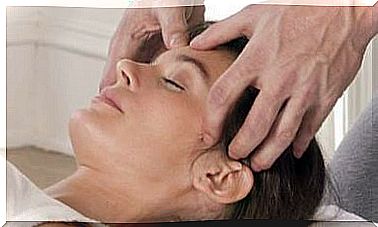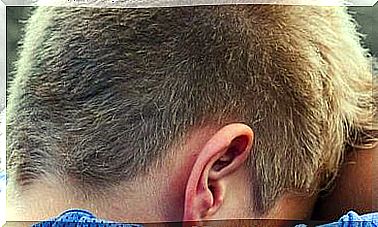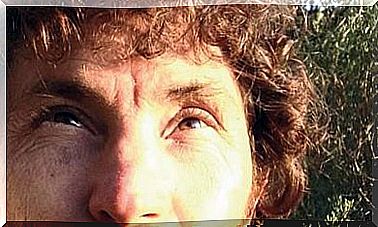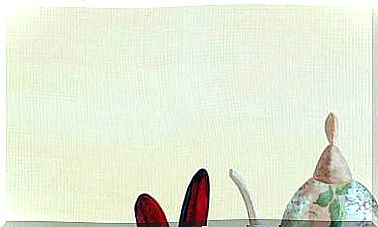The True Origin Of Love
We are all born with the ability to love, which is to do good, to care, to support the other … We display it if we have felt loved as children and also when we mature

Talking about love is often confusing, as we automatically think of romantic love between two adults. We have grown up fascinated by fairy tales and then during adult life we feed on myths, movies, novels and stories that reach a certain level of happiness to the extent that a couple’s love is consumed. Beyond the fact that love in couples exists and is desirable, I think it is pertinent to locate the origin of the capacity to love.
Human beings are born – all of us, without exception – with the ability to display this attribute: to do good to others. Because that is love, it is giving priority to the other over one’s own needs: to attend to, to feel sorry for, to feel and to make life easier for others.
Discovering where love is born
Now, human beings are born immature. In order for us to deploy our resources in the future, including the development of the capacity to love, we have to go through our entire childhood in a state of welcome. This state is fundamental, much more than philosophical and religious theories remind us today.
To love is to give priority to the other over one’s own needs: to care, pity, feel and make life easier for others
Childhood is the stage of life when we need to be unconditionally loved. Loved by whom? As much as possible for our mother or the maternal person. It is very likely that we all remember the words of our mother saying how much she has loved us and how much she has sacrificed for us. It’s true? From our mother’s point of view, of course I do. But from the point of view of the child that we have been … it is unlikely that we have been filled with our basic needs as human mammalian creatures.
The seed of love
Childhood is the time in life when human beings should have lived love in all its dimensions. We should have felt blessed, loved, safe, sheltered, accompanied, understood, caressed, helped and fulfilled. We should not have been required to be or to do something other than what was spontaneously born from our guts. We should have simply been accompanied on our explorations. We should have had free access to our mother’s body. We should have received only smiles and signs of approval, kind words and explanations of our emotional states.
If we had lived love in all its dimensions during our childhoods … we would have simultaneously developed compassion for the other and a permanent interest in doing good. We would feel the Earth cry or wake up, we would feel the animals and plants, we would feel other children in their joys or sufferings, and we would be attentive to compensate for any lack or need without weighing whether it suits us.
If we had lived love in all its dimensions during our childhoods … we would have developed compassion for the other
Love is experienced – or not – during early childhood. Children should not respond to anyone’s expectations, but only explore our own universe as we grow up, under the attentive and compassionate gaze of the elders who care for us. This is Love. It is the internal experience that love surrounds us in all its splendor and that there is nothing to fear or do about it.
If we had grown up in that state of bliss … love would be a daily practice and it would be evident to us that there is nothing more important than what we can offer to the other. Love and altruism go hand in hand. Loving our neighbor as we love ourselves is one of the oldest precepts, and yet we have not yet achieved that habit.
Look at our wounds from the romantic past
What can we do today when we discover that we have not been loved – according to our expectations – when we were children? How can we learn to love today if we have not had that experience?
First of all, it is essential to approach the reality of our childhood with eyes wide open. Nobody can modify an internal experience if they are not clear about what is really happening. It is not about judging our mother or those who raised us. It is only about addressing the deficiencies that as human creatures we have suffered, to understand the survival mechanisms that we have deployed. These mechanisms were compensatory and, in general, they tend to supply us with what we lacked. Then that machinery usually works to fill us and satisfy us in all areas of life. And any system of self-satisfaction … is contrary to the ability to love, which is based on the fact that the other has priority.
Let’s address the deficiencies that as human creatures we have suffered to understand our survival mechanisms
When we are still lacking in love, we cannot give priority to the other, but we try to calm old needs that we live as if they were current. That’s why they hurt. That is why we need to fill them. Therefore, the need of others is relegated. It is essential to understand our inner emptiness and the reasons why we feel the urgent need to satisfy ourselves.
The second step is to observe the whole network: our childhood, our youth and our adulthood until we put things in their place. In this second stage, we should no longer suffer for what happened to us when we were children, because that has already happened. We cannot go back. Although it is essential to understand what happened and what we have done with what happened to us. Once we have understood, with humility and gratitude, we will be ready for what follows. I mean the third step: ask ourselves if we are willing to love the other, even if we have not been loved enough. How will we do it? Understanding that –even without having received the level of protection and affection that we would have needed during our childhood– we can decide to love.
Giving love sets us free
The ability to love is latent within us. It is feasible to put it into practice knowing that loving is registering the other, accepting the other in his essence, accompanying him in his requirements, supporting, supporting, listening, attending and being available. All that is love.
To love is to accept the other in its essence, to support, sustain, listen, attend and be available. All that is love
But what if – even making that effort – we don’t feel loved? No problem. When we were children we would have needed that unconditional love. Instead, adulthood becomes a giving state. Only by loving will we realize that we do not need anything else. That the fact of being attentive and available transforms us, embellishes us and floods us with happiness. As long as – from time to time, when vestiges of that infantile need appear – we know that those feelings are ingrained there, but they no longer constitute our reality. And the way to approach them with conscience is by recognizing that we have matured and that no one can prevent us from doing good.









